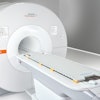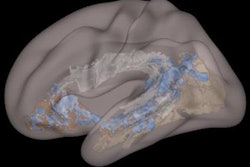Monday, December 2 | 11:40 a.m.-11:50 a.m. | SSC08-08 | Room E450A
An artificial intelligence (AI) algorithm can sharply reduce the scanning time required for whole-body diffusion-weighted MRI (WBDWI), according to researchers from the U.K.Whole-body diffusion-weighted MRI is an attractive noninvasive tool for staging and evaluating treatment response of lymphoma and metastatic bone disease from prostate and breast cancers, presenter Konstantinos Zormpas-Petridis, a doctoral student at the Institute of Cancer Research in Surrey, told AuntMinnie.com. However, the imaging exam requires a total study time of approximately one hour, including patient setup and positioning.
"This provides a calamitous bottleneck for the adoption of WBDWI into a general clinical workflow; an ever-increasing patient population increases capacity pressures on imaging centers, which are then less willing to perform such long imaging studies," Zormpas-Petridis said. "Furthermore, patients for which WBDWI has shown to be clinically useful are typically frail and have painful conditions, which lowers patient acceptance of the methodology."
As a result, accelerated acquisition schemes are highly sought after, he said. The researchers sought to utilize AI to determine whether subsampled -- but rapidly acquired -- images could be used to reconstruct high-quality images.
They found that their AI approach could provide "clinical-grade" images from subsampled data, potentially reducing acquisition times from approximately 30 minutes down to about 5 minutes.
"Such time-savings could reduce scanning costs," as well as render whole-body diffusion-weighted MRI appropriate for screening studies and reduce imaging time and discomfort for patients, Zormpas-Petridis noted.





















